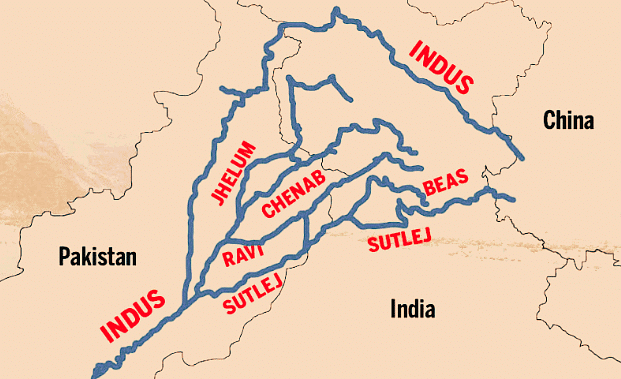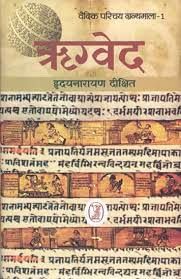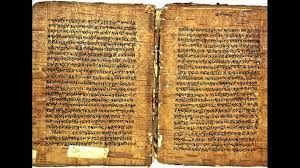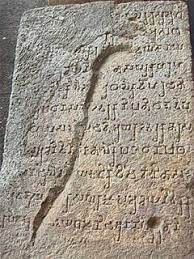Class 6 Exam > Class 6 Notes > Class 6 All Subjects (Old NCERT) > NCERT Summary: What, Where, How & When
What, Where, How & When Summary Class 6 Social Science Chapter 1
Where did people live?
- In India, the earliest people lived along the banks of the river Narmada for several hundred thousand years.
- They were skilled Gatherers and used to gather food.
- They had very vast knowledge of the plants growing around them. They also used to hunt animals for food.
- Sulaiman and Kirthar hills to the northwest of India these areas where women and men first began to grow crops such as wheat and barley about 8000 years ago are located here. People also began rearing animals like sheep, goats, and cattle and lived in villages.
- Garo hills to the north-east and the Vindhyas in central India. These were some of the other areas where agriculture developed. The places where rice was first grown are to the north of the Vindhyas.
 River Indus and its tributarier
River Indus and its tributarier
- The river Indus and its tributaries (tributaries are smaller rivers that flow into a larger river). About 4700 years ago, some of the earliest cities flourished on the banks of these rivers.
- Later, about 2500 years ago, cities developed on the banks of the Ganga and its tributaries, and along the sea coasts.
- The Ganga and its tributary are called the Son. In ancient times the area along these rivers to the south of the Ganga was known as Magadha now lying in the state of Bihar. Its rulers were very powerful and set up a large kingdom.
- Traveling enriched the cultural traditions and sharing of ideas between people. People shared new ways of carving stones, composing music and cooking for several hundreds of years.
Question for NCERT Summary: What, Where, How & WhenTry yourself: Where did people first begin to grow crops and rear animals in India?View Solution
Names of the land
- The name India came from the river Indus (Sindhu in Sanskrit). 2500 years ago, the Iranians and the Greeks who came to India from the Northwest side called the river Indus 'Hindos' or 'Indos'. And the land to the east of this river was called India.
 Rig Veda
Rig Veda
- The name Bharata refers to a group of people who lived in the northwest part of India. They are also mentioned in Rig Veda some 3500 years ago. Later this name was used for the country.
Finding out about the past
- There are several ways of finding out about the past. One is to search for and read books that were written long ago. These are called manuscripts because they were written by hand (this comes from the Latin word ‘manu’, meaning hand).
 Ancient Manuscripts
Ancient Manuscripts
- These were usually written on palm leaf, or on the specially prepared bark of a tree known as the birch, which grows in the Himalayas.
- Many of these were written in Sanskrit, others were in Prakrit (languages used by ordinary people) and Tamil.
Inscriptions
- These are writings on relatively hard surfaces such as stone or metal. Sometimes, kings got their orders inscribed so that people could see, read, and obey them.
- There are other kinds of inscriptions as well, where men and women (including kings and queens) recorded what they did. For example, kings often kept records of victories in battle.
- An archaeologist is a person who studies the people and what they did in the past by the things they left behind.
 Inscriptions
Inscriptions
- They look for artifacts, which are the things made by the people and these artifacts reveal more about the past. They also carry on excavations (Digging the surface of the earth)
- Archaeologists also study the bones of animals, birds, and fish to find out the food habits of the people of the past. They even study the plant remains, but the plant remains barely survive for so long.
- The evidence found by the Archaeologists is called Features.
The document What, Where, How & When Summary Class 6 Social Science Chapter 1 is a part of the Class 6 Course Class 6 All Subjects (Old NCERT).
All you need of Class 6 at this link: Class 6
|
297 videos|1066 docs|204 tests
|
FAQs on What, Where, How & When Summary Class 6 Social Science Chapter 1
| 1. Where did people live? |  |
Ans. People lived in different types of houses like pit dwellings, mud-brick houses, timber houses, and houses made of stones and bricks.
| 2. How did people build their houses? |  |
Ans. People built their houses using materials like mud, timber, stones, and bricks. They used various techniques like piling stones, weaving bamboo, and plastering mud to construct their homes.
| 3. What were the factors that determined where people lived? |  |
Ans. Factors like availability of resources, climate, geographical features, social factors, and cultural practices determined where people chose to live.
| 4. Why did people live in specific types of houses? |  |
Ans. People lived in specific types of houses based on factors like the availability of materials, climate conditions, cultural practices, and social factors that influenced their choice of housing.
| 5. When did people start living in more permanent settlements? |  |
Ans. People started living in more permanent settlements around 12,000 years ago during the Neolithic Revolution when they began to practice agriculture and domestication of animals. This led to the development of villages and towns where people settled permanently.
Related Searches

















